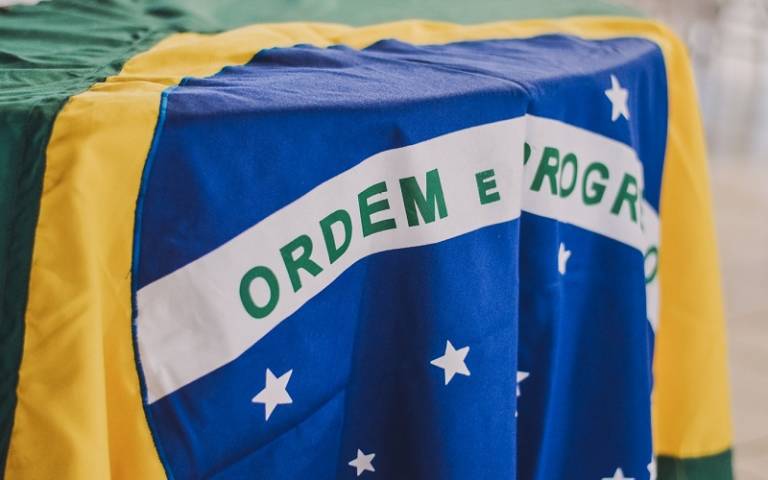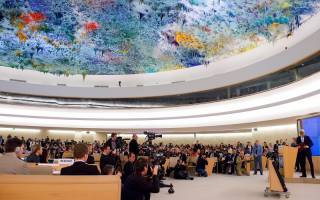What the Bolsonaro Election Means for Human Rights
16 November 2018
In October, Jair Messias Bolsonaro was elected the next president of Brazil. Alejandra Ceballos (MSc Global Governance and Ethics) comments on the implications for human rights.

On October 28th, Jair Messias Bolsonaro was elected the next president of Brazil, having secured 55.1% of the vote in a runoff against Worker Party’s Fernando Haddad.
Bolsonaro, nicknamed the “Trump of the Tropics”, became a controversial figure around the world in the months before the election because of comments made before and throughout his campaign. These included insults to members of a black settlement in Brazil and telling a congresswoman: “I wouldn’t rape you because you are not worthy of it”.
The president-elect is widely described as a populist with pro-life and pro-gun views. He has been vocal about his opposition to abortion, gay-marriage, immigration, and environmental regulations among other issues. Bolsonaro has also expressed his belief that women should not get paid as much as men because they can get pregnant, and argued that paid maternity leave is harmful to productivity.
Bolsonaro’s tough stand on crime was one of his main pitches throughout the campaign. He has said: "I am in favour of torture, you know that. And the people are in favour as well.”
Such statements have raised concerns about the future of human rights in Brazil. On the day of the second election, Human Rights Watch stated that the country’s judiciary and other main institutions should “resist any attempt to undermine human rights, the rule of law, and democracy under Jair Bolsonaro’s government”.
Bolsonaro is certainly not the first far-right populist that has been elected to office in recent years. Populism appears on the rise all over the world, including many Western democracies. Political events such as the election of Donald Trump in the US and the Brexit referendum in the UK have caused concerns internationally, and have raised the question of how the future of human rights will look like.
According to human rights expert and practitioner Philip Alston, “the populist agenda that has made such dramatic inroads recently is often avowedly nationalistic, xenophobic, misogynistic, and explicitly antagonistic to all or much of the human rights agenda”.
Toni Reis, president of Brazil’s National LGBT+ Alliance told NBC: “Obviously, we are afraid.” It is widely believed that the recent accomplishments by the LGBTQ community in Brazil will be threatened by Bolsonaro and his strong religious views. The president-elect has previously said that he would prefer that his son would die in an accident rather than him being gay, and stated: “I won’t fight against it nor discriminate, but if I see two men kissing each other on the street, I’ll beat them up”.
In terms of women’s rights, concerns have been raised as well. Apart from openly defending the 23% gender pay gap in Brazil, Bolsonaro has worried activists fighting against sexual violence and campaigning for reproductive. The Supreme Court is currently analysing the possibility of permitting elective abortions up to the 12th week of pregnancy. Bolsonaro has expressed that he will ban any changes to the current law, which only allows abortion in cases of risk to the mother’s life, a health abnormality or rape. In 2013, he also supported a bill to take away provisions for victims of rape from the public healthcare system, according to Time.
Another part of the population that has been attacked by Bolsonaro are Brazilian citizens from African backgrounds and indigenous minorities. The president-elect has said that he will make cuts in action schemes by universities that are trying to combat work imbalance between minorities and white Brazilians. According to Climate Change News, Bolsonaro said: “Minorities have to bend down to the majority. The minorities should either adapt or simply vanish”, when giving a speech about environmental policies in the Amazon.
Alston says that “populism is driven in part by fear and resentment”. This is likely the case in Brazil. According to The Guardian, a rise in levels of crime in the country was perhaps one of the main factors leading to Bolsonaro’s victory. Another cause could be the anger caused by allegedly corrupt politicians, which include former presidents Luiz Inácio Lula da Silva and Dilma Rousseff.
What does all of this mean for the international human rights regime more broadly? Alston has suggested that the human rights movement might have to re-evaluate its strategies and priorities in light of the global populist challenge. This could include strengthening synergies between international and local human rights advocates, getting new actors into the fold, and taking economic and social grievances more seriously. At the same time, we also need to find ways to reaffirm and better promote the fundamental principles of the human rights regime.
 Close
Close


